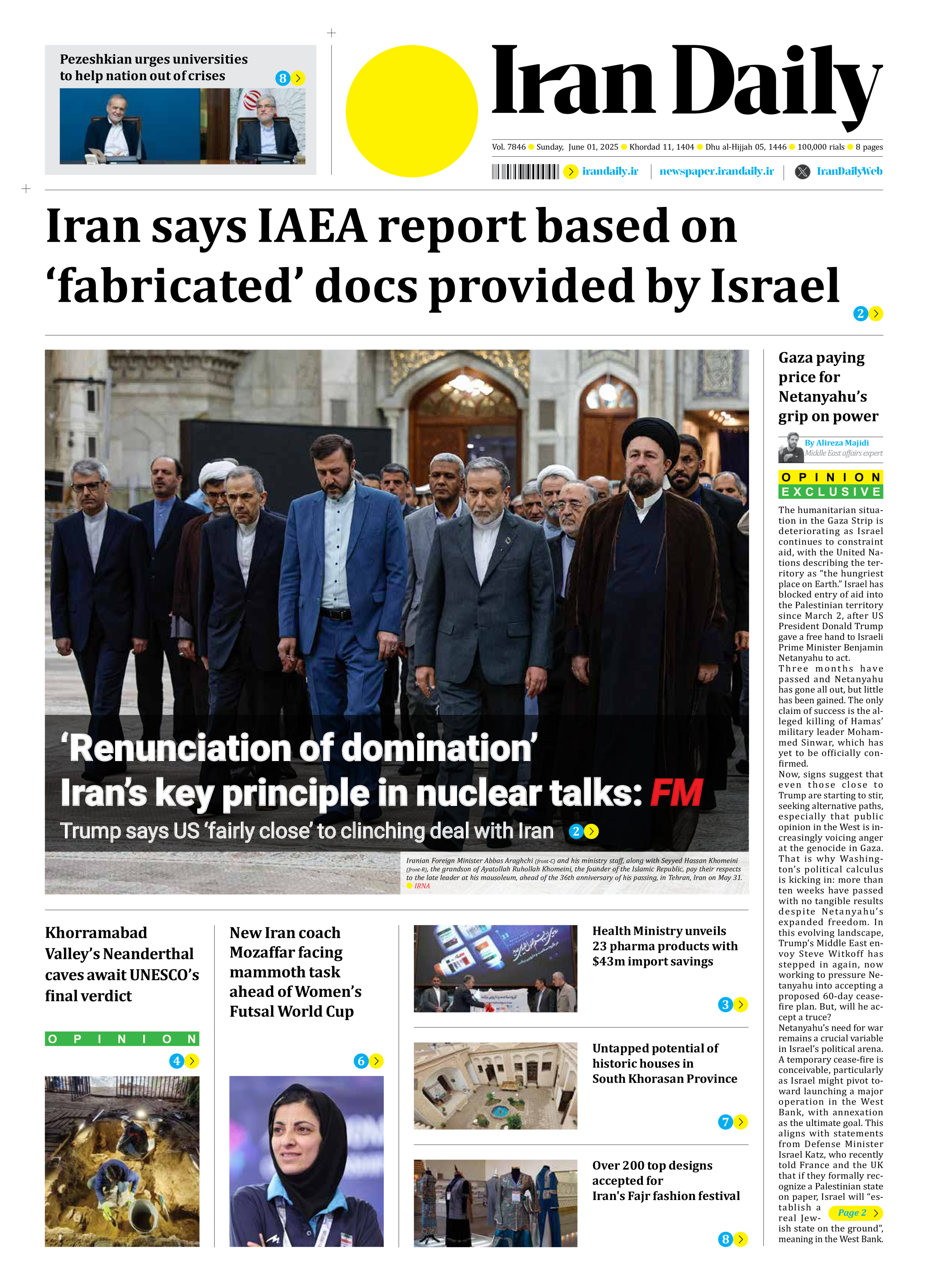
Gaza paying price for Netanyahu’s grip on power
By Alireza Majidi
Middle East affairs expert
The humanitarian situation in the Gaza Strip is deteriorating as Israel continues to constraint aid, with the United Nations describing the territory as “the hungriest place on Earth.” Israel has blocked entry of aid into the Palestinian territory since March 2, after US President Donald Trump gave a free hand to Israeli Prime Minister Benjamin Netanyahu to act.
Three months have passed and Netanyahu has gone all out, but little has been gained. The only claim of success is the alleged killing of Hamas’ military leader Mohammed Sinwar, which has yet to be officially confirmed.
Now, signs suggest that even those close to Trump are starting to stir, seeking alternative paths, especially that public opinion in the West is increasingly voicing anger at the genocide in Gaza. That is why Washington’s political calculus is kicking in: more than ten weeks have passed with no tangible results despite Netanyahu’s expanded freedom. In this evolving landscape, Trump’s Middle East envoy Steve Witkoff has stepped in again, now working to pressure Netanyahu into accepting a proposed 60-day cease-fire plan. But, will he accept a truce?
Netanyahu’s need for war remains a crucial variable in Israel’s political arena. A temporary cease-fire is conceivable, particularly as Israel might pivot toward launching a major operation in the West Bank, with annexation as the ultimate goal. This aligns with statements from Defense Minister Israel Katz, who recently told France and the UK that if they formally recognize a Palestinian state on paper, Israel will “establish a real Jewish state on the ground”, meaning in the West Bank.
Page 2







